Selecting the right boiler for your home is crucial for optimal comfort and energy efficiency. With various types available, understanding their differences is key to making an informed decision. A boiler is not just a heating appliance; it’s a cornerstone of your home’s comfort. So, selecting the right type is vital. Let’s explore the three most common types of boilers to grasp their unique characteristics and benefits.
Understanding the Different Types of Boilers
Conventional boilers, also known as heat-only or regular boilers, are common in older households. They work with both a cold water tank and a hot water cylinder, suitable for homes with high hot water demands. These boilers heat water and store it in a cylinder, ready for use. They’re reliable, providing hot water to multiple taps simultaneously, and practical for larger families or homes with higher hot water needs. Their simple design makes them easy to repair and maintain, potentially reducing long-term costs.
Combi boilers, or combination boilers, are compact and efficient. They provide hot water without a separate water tank, ideal for smaller homes where space is limited. One key advantage is their ability to heat water on demand, ensuring almost instant hot water when needed. This feature reduces energy consumption and eliminates the need for a storage tank, saving space in cramped apartments or houses. However, they may not be suitable for homes with multiple bathrooms or higher hot water requirements simultaneously.
System boilers work with a sealed hot water cylinder, ensuring quick hot water delivery. They are suitable for homes with more than one bathroom and high water pressure requirements. Unlike conventional boilers, they don’t need a water tank in the loft, saving space and delivering water at the main pressure. They’re beneficial for households with a demand for hot water from multiple sources simultaneously, ensuring straightforward installation.
Comparing the Efficiency and Energy Consumption of Your Boiler
Understanding energy efficiency ratings and fuel types is crucial for determining operational costs and environmental impact. Conventional boilers have lower initial costs but may not be as energy-efficient. Combi boilers save energy and minimize heat loss, making them cost-effective for moderate hot water requirements. System boilers are efficient, ensuring consistent hot water flow without excessive energy consumption.
Analyzing Boiler Costs
While some boilers may require a higher initial investment, their energy-saving capabilities lead to long-term savings. Conventional boilers are affordable but may incur higher energy bills. Combi boilers prove more economical in the long run due to their energy-efficient operation. System boilers offer energy savings, making them a viable investment for households with substantial hot water demands.
Assessing Space Requirements
Combi boilers are ideal for compact living spaces, as they are space-saving. Conventional and system boilers are better for larger properties, ensuring an uninterrupted hot water supply for multiple bathrooms and taps.
Installation and Maintenance Considerations for Your Boiler
Combi boilers are relatively straightforward to install, although adjustments to existing pipework may be necessary. Regular maintenance is crucial for all boilers to ensure optimal performance and longevity.
Examining the Environmental Impact of Your Boiler
Combi boilers are considered more eco-friendly, reducing energy consumption and promoting sustainable living. System boilers contribute to reducing carbon emissions. Both types are compatible with renewable energy sources.
Boiler Suitability for Different Home Types
Combi boilers suit small homes, while medium-sized homes benefit from both combi and system boilers. Larger properties require the reliability of conventional and system boilers for ample hot water supply.
Factors to Consider When Selecting a Boiler
Consider your location’s climate and household’s hot water demands. Ensure compatibility with the existing heating system to avoid complications and additional expenses. Consult qualified professionals for expert advice tailored to your specific heating needs.
What is the right boiler for you?
Understanding the types of boilers and their features helps you make an informed choice that aligns with your heating requirements and goals. Prioritize efficiency, durability, and compatibility for a cozy and energy-efficient living space all year round.
